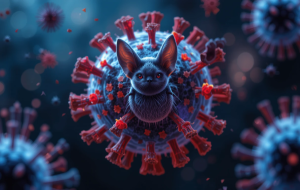A Woman Undergoes Over 100 Fecal Microbiota Transplants to Treat Ulcerative Colitis: A Success Story and Insights into FMT

Our health news section provides you with the latest information on a wide range of health topics, from breaking news to in-depth analysis. We cover everything from the latest medical research to lifestyle tips for staying healthy. Our goal is to help you make informed decisions about your health and well-being
In the realm of medicine, there are tales of remarkable recoveries that challenge conventional approaches and offer hope for those battling debilitating illnesses. The story of a woman named Jessica, who overcame her decade-long battle with ulcerative colitis through the unorthodox method of fecal microbiota transplantation (FMT), stands as a testament to the power of innovative treatments and the resilience of the human spirit.
Jessica’s Struggle with Ulcerative Colitis
Jessica’s life was overshadowed by the relentless symptoms of ulcerative colitis, an inflammatory bowel disease that wreaked havoc on her digestive system. Despite numerous medications and procedures, her condition remained stubbornly resistant to treatment. The constant pain, fatigue, and unpredictable flare-ups severely impacted her daily life, leaving her feeling helpless and discouraged.
A Beacon of Hope: Fecal Microbiota Transplantation
Amidst the darkness, a glimmer of hope emerged in the form of FMT. This groundbreaking procedure involves transferring fecal matter from a healthy donor to a patient with a diseased microbiome, with the aim of restoring balance to the gut flora. While still considered experimental, FMT has shown remarkable promise in treating various gastrointestinal disorders, including ulcerative colitis.
Jessica’s Journey with FMT: A Rollercoaster of Emotions
Driven by desperation and fueled by the promise of a life free from ulcerative colitis, Jessica embarked on her FMT journey. The procedure itself was not without its challenges, both physical and emotional. The initial attempts yielded mixed results, with periods of improvement followed by disheartening setbacks. However, Jessica remained steadfast in her determination, undeterred by the daunting task of undergoing over 100 FMTs.
The Turning Point: A Life Transformed
After a series of FMTs, Jessica experienced a turning point. Her symptoms began to subside, and her overall health steadily improved. The pain that had plagued her for years gradually faded, and her energy levels soared. The once unpredictable flare-ups became a distant memory, replaced by a newfound sense of normalcy.
FMT: A Promise for the Future
Jessica’s story serves as a beacon of hope for those struggling with ulcerative colitis and other gastrointestinal disorders. While FMT is still in its early stages of development, its potential to revolutionize the treatment of these conditions is undeniable. Jessica’s unwavering determination and resilience underscore the power of the human spirit to overcome adversity and embrace the promise of a healthier future.
Insights into Fecal Microbiota Transplantation
FMT remains an area of active research, and scientists are continuously delving into the intricacies of the gut microbiome and its impact on human health. As our understanding of the microbiome deepens, the potential applications of FMT are expected to expand, offering hope for a wide range of medical conditions.
Safety Considerations and Ethical Concerns
Despite its promising potential, FMT is not without its safety considerations and ethical concerns. Careful screening of both donors and recipients is crucial to minimize the risk of infection and to ensure that only healthy fecal matter is transplanted. Additionally, ethical considerations regarding informed consent and the long-term implications of altering the gut microbiome warrant careful consideration.
Jessica’s remarkable journey with FMT highlights the transformative potential of this innovative treatment. While further research is needed to fully elucidate its mechanisms of action and optimize its application, FMT offers a glimmer of hope for those battling debilitating gastrointestinal disorders. As our understanding of the microbiome expands, FMT is poised to play an increasingly significant role in the future of medicine.






